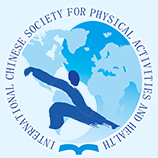Document Type
Article
Keywords
online exercise classes, employee health, substance use, sleep
Publication Date
11-7-2023
Abstract
This cross-sectional study sought to examine the association of virtual exercise with physical activity (PA), general, and mental health during COVID-19 among university employees. Individuals completed an online survey with questions about demographic, sleep, substance use, and virtual exercise participation. The International Physical Activity Questionnaire and 36-Item Short Form Health Survey assessed PA, general, and mental health. Data were analyzed for descriptive, correlation, and multiple regression models. Complete data were collected from 122 participants with a mean age of 45.6±13.1 years. Participation in virtual exercise were highest for twice a week (24.6%) followed by once a month (17.2%) and never (17.2%). Over a quarter of participants reported an increase (29.1%) in alcohol use. No significant differences were found in total MET-min between before (1952 ± 1373) and during-COVID (1973 ± 1692) (p > .05); however, virtual exercise participation significantly associated with an increase in PA (β = 609.08, p=.01). Statistically significant positive relationships were also found between higher PA and better general health (β = .005, p < 0.01), and emotional well-being (β = .004, p < .05). Self-reported COVID disruptiveness was negatively associated with emotional well-being (β = -3.28, p < 0.001). This data suggested that virtual exercise courses were associated with maintaining PA which may indirectly regulate general and mental well-being during the pandemic for university employees.
DOI
https://doi.org/10.18122/ijpah.2.3.9.boisestate
Recommended Citation
Bai, Yang; Ohayon, Jacqueline; Burns, Ryan D.; Byun, Wonwoo; Newton, Maria; Brusseau, Timothy; and Thompson, Traci
(2023)
"The Association of Virtual Exercise Classes and Well-Being During COVID-19 Among University Employees,"
International Journal of Physical Activity and Health: Vol. 2:
Iss.
3, Article 9.
DOI: https://doi.org/10.18122/ijpah.2.3.9.boisestate
Available at:
https://scholarworks.boisestate.edu/ijpah/vol2/iss3/9



